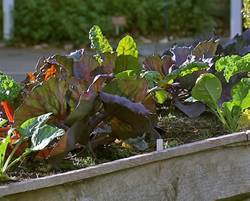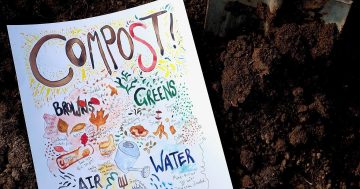 Home-grown fruit and vegetables may not be fit for consumption with Victoria’s Environmental Protection Authority (EPA) warning flood-impacted gardeners to take precautions.
Home-grown fruit and vegetables may not be fit for consumption with Victoria’s Environmental Protection Authority (EPA) warning flood-impacted gardeners to take precautions.
Chief Environmental Scientist at EPA, Mark Taylor said fruit and vegetables that had been in contact with floodwaters may need to be thoroughly washed or even thrown out.
“All flood waters are considered to be contaminated and that could transfer to your vegetables,” Professor Taylor said.
“Some fruit and vegetables will be salvageable simply by washing them, but if your garden was flooded in the recent heavy rain events experienced around the State, if there’s any doubt, we always advise to be cautious and throw them out.”
He said EPA floodwater testing had shown highly variable rates of contamination by location and date of testing, which heightened the need for caution.
Professor Taylor advised home gardeners not to eat leafy vegetables, such as spinach, cabbage, lettuce and kale, or produce that was already damaged before the flood.
“For example, a tomato with split skin with exposed flesh will not be safe to eat,” the Chief Scientist said.
He advised people to avoid raw soft fruits such as strawberries or raspberries, “they cannot be washed thoroughly, so they are only safe if they can be cooked”.
Professor Taylor said vegetables with protective shells, husks or skins, such as peas and sweet corn, should be thoroughly washed, peeled and cooked before eating.
Regarding fruits and vegetables that were immature at the time of flooding, he said although they should be safe to eat by the time they were ready to harvest, they should still be washed thoroughly before eating.
Further information on the risk of foodborne illnesses can be accessed at this PS News link.











